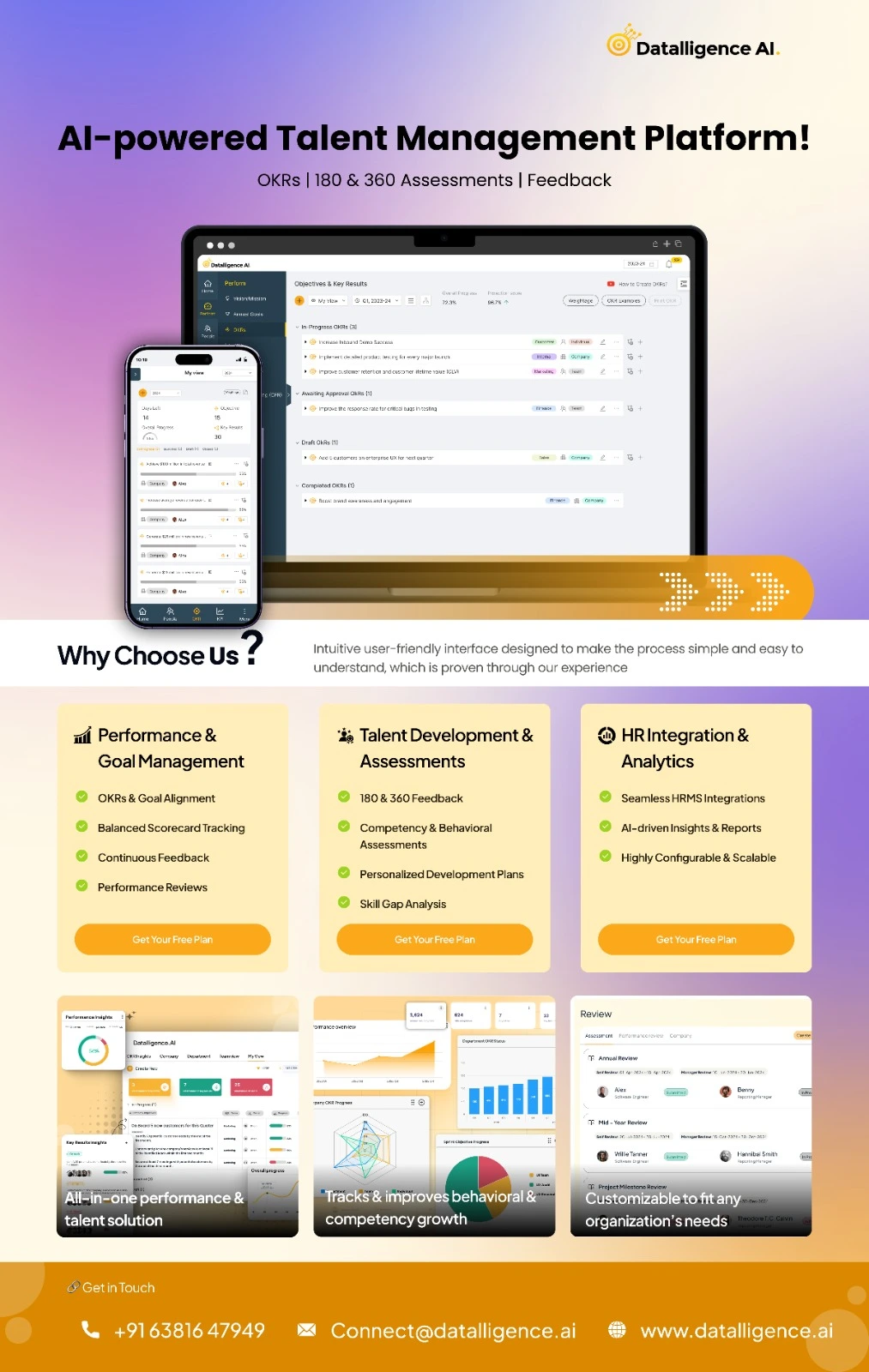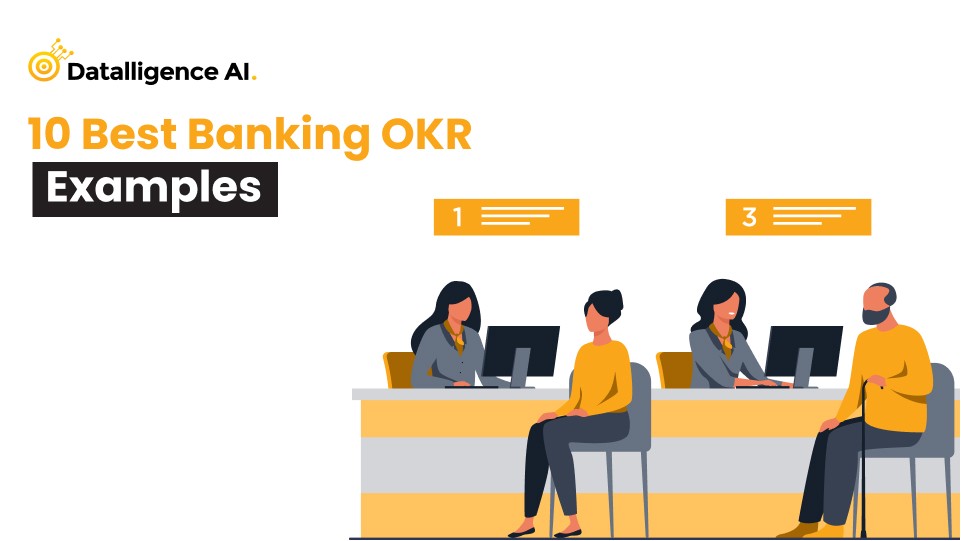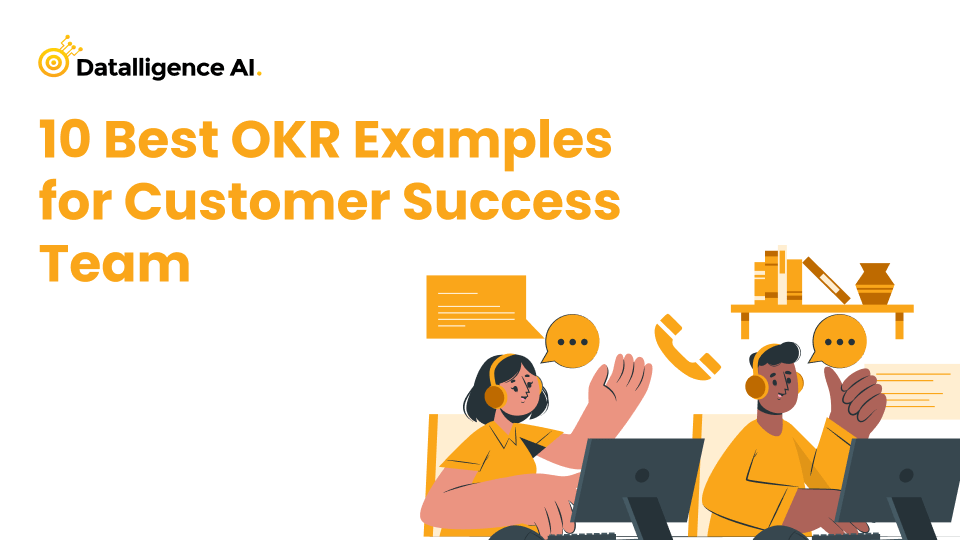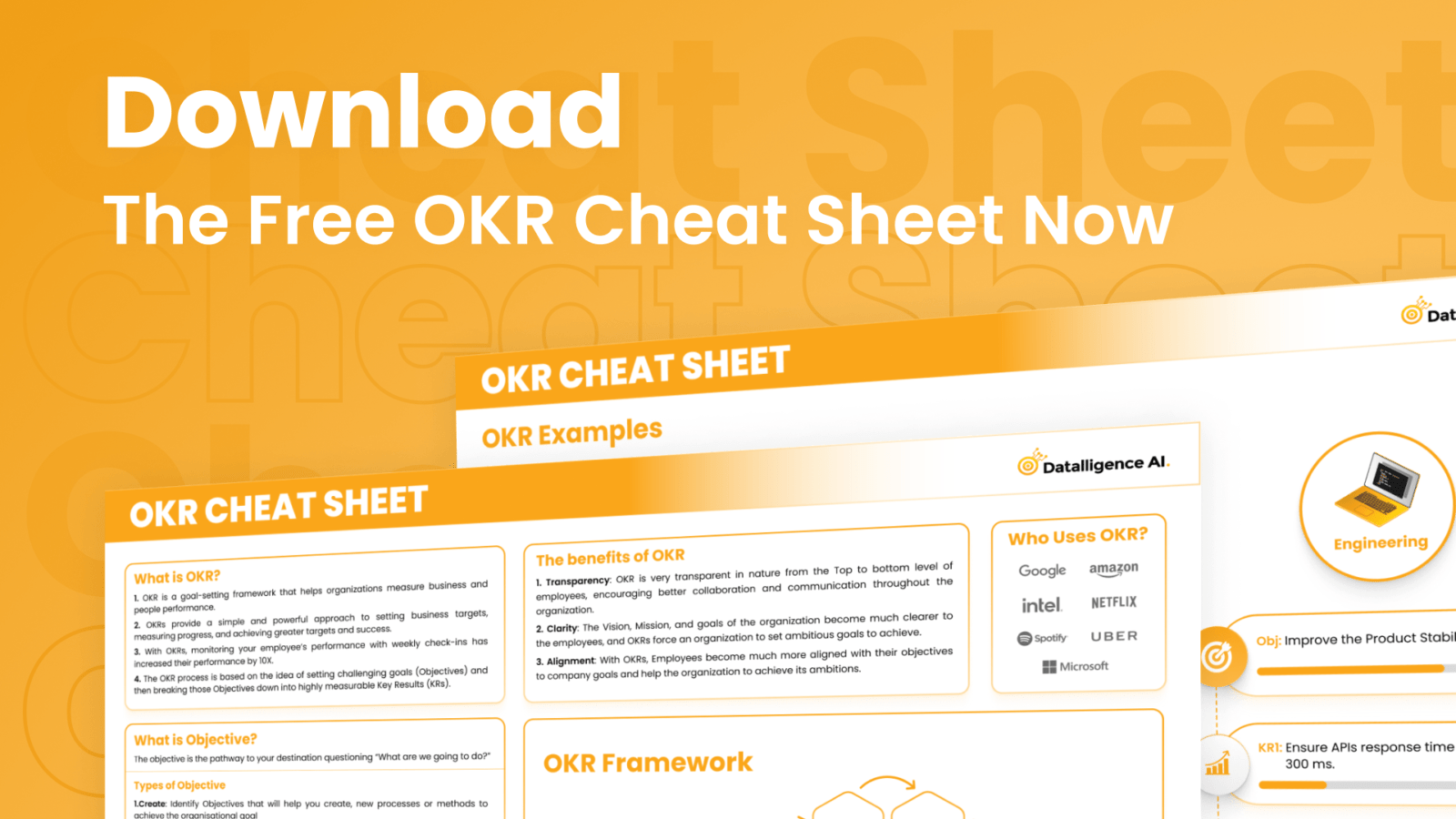Workshops are conducted mainly and solely for employees to share their experiences on a particular subject, brainstorm ideas, identify problems, make decisions, and develop solutions.
So, When you implement OKRs in your organization, it is necessary to conduct workshops on a weekly or monthly basis to re-evaluate your progress.
If this is your first time conducting an OKR workshop, In this blog let’s explore the OKR workshop and how to conduct one as we discuss best practices to ensure a fruitful OKR workshop.
But before that let us quickly go through OKR.
What is OKR
OKR stands for Objectives and Key Results. It is a powerful goal-setting framework that is used by organizations to set and track progress toward their goals. OKRs aim to align individual and team objectives with the organization’s overall strategy. OKRs are typically set at various levels within an organization, from individual contributors to teams, departments, and the entire company. They are often reviewed and updated regularly, allowing organizations to adapt to changes and remain focused on their goals.
OKRs have become popular in recent years as a way to align teams, track progress, and drive performance. They are often used in the context of Agile methodologies, but they can be applied in any organizational setting.
Learn how to grow 10X with OKR through this link: Grow Business 10X with OKR
What is an OKR workshop?
An OKR workshop is a collaborative event where participants come together to define and set achievable goals and objectives, along with key results that will help measure success. An OKR workshop aims to create a clear and concise framework for aligning organizational efforts, tracking progress, and ensuring everyone are working towards a common purpose. During the workshop, participants will discuss their individual and team goals, determine what key results will be used to measure success and develop a plan for how to achieve their objectives.
This process helps ensure that everyone is working towards a common goal, which can increase productivity and motivation. The goal of the OKR workshop is to provide a clear roadmap and structure for teams to achieve their desired outcomes.
During the OKR setting workshop, your team members should discuss topics such as:
- Company strategy
- Goal-setting best practices
- Feedback collection methods
- Evaluation criteria for success measurement tools
Review all submitted materials after each session, and provide input on anything that needs to be clarified or improved. It’s the greatest technique to make sure that everyone on the team is aware of the crucial outcomes that must be achieved to reach the intended results.
How to Conduct a Workshop
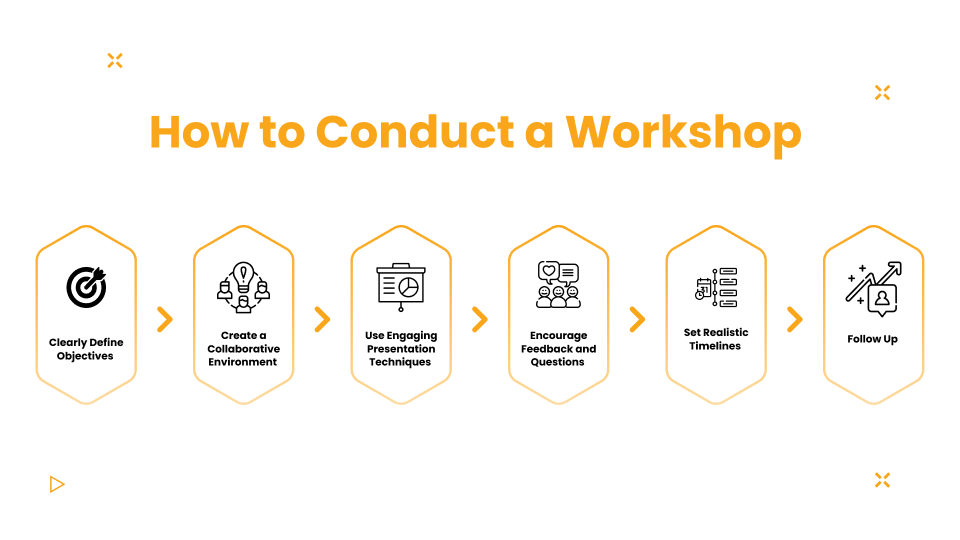
Clearly Define Objectives
The first step in conducting an effective OKRs workshop is to clearly define the objectives of the workshop. This will give everyone involved a clear understanding of what is expected from the workshop, and what the outcomes should be. Make sure everyone understands what OKRs are, and why they are being used. Make sure everyone knows what the goal of the workshop is, and what everyone’s role is in achieving that goal.
Create a Collaborative Environment
It is important to create a collaborative environment in which everyone feels comfortable sharing their ideas and opinions. Encourage open communication and make sure everyone has an opportunity to contribute. Encourage participants to work together to develop goals and objectives that will benefit everyone involved. Make sure everyone feels like they have a stake in the outcome of the workshop, and that their ideas are valued.
Use Engaging Presentation Techniques
To keep everyone engaged, it is important to use engaging presentation techniques. This might include interactive activities, role-playing exercises, and case studies. Make sure to use visuals, such as charts and graphs, to help illustrate key points. Try to incorporate humor where appropriate, to keep everyone relaxed and focused.
Encourage Feedback and Questions
Encourage feedback and questions throughout the workshop. Make sure everyone feels comfortable asking questions, and that their questions are addressed in a timely and professional manner. Use group discussions and brainstorming sessions to encourage everyone to contribute and participate. Make sure everyone is aware that their input is valued, and that the workshop is designed to be a collaborative effort.
Set Realistic Timelines
It is important to set realistic timelines for each stage of the workshop. Make sure everyone understands what is expected of them, and what the deadlines are. Encourage everyone to work together to achieve the objectives, and make sure everyone is aware of the progress that is being made. Make sure everyone understands the importance of meeting deadlines, and the impact that missing deadlines will have on the overall success of the workshop.
Follow Up
Finally, it is important to follow up after the workshop has ended. Make sure everyone knows what the next steps are, and what they should be doing to continue working towards the objectives. Encourage everyone to stay involved, and to continue working together to achieve the goals and objectives. Follow up regularly to ensure everyone is on track, and to address any issues that may arise.
What are the primary reasons for conducting an OKR workshop
- To clarify and align company objectives and goals with the team.
- To establish individual and team goals and prioritize tasks.
- To track progress and measure success in a systematic and structured way.
- To encourage collaboration and teamwork in achieving shared goals.
- To foster continuous improvement and ensure that everyone is working towards a common purpose.
- To enhance communication and transparency within the team.
- To promote accountability and ownership of goals among team members.
- To provide a framework for regular check-ins and feedback sessions.
- To increase motivation and engagement among employees by aligning their work with the company’s mission and vision.
- To drive innovation and progress by setting challenging and realistic goals.
Conclusion
An OKRs workshop can be a great way to help teams understand and implement this goal-setting framework. By starting with the basics, defining the purpose, getting everyone involved, using real-world examples, setting specific objectives, and using a hands-on approach, organizations can ensure that their OKRs workshop is productive and effective. By aligning objectives and key results, organizations can drive meaningful progress toward their goals and create a more focused and motivated workforce. Talk to our experts and coaches to gain more insights or try a 14-day free trial by Datalligence.


